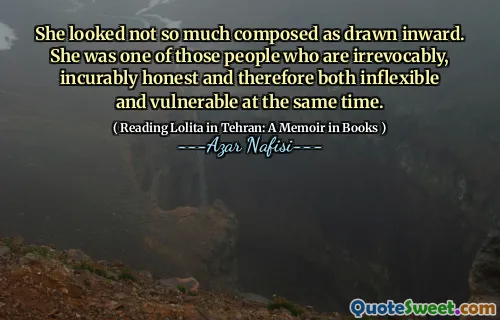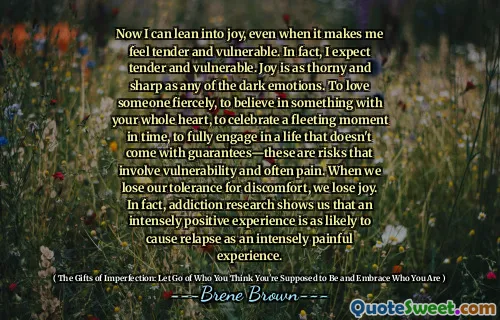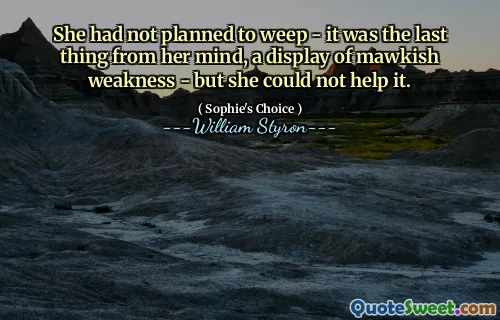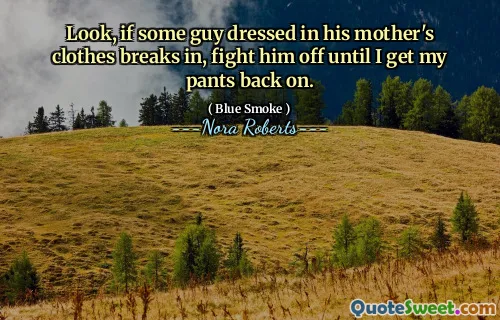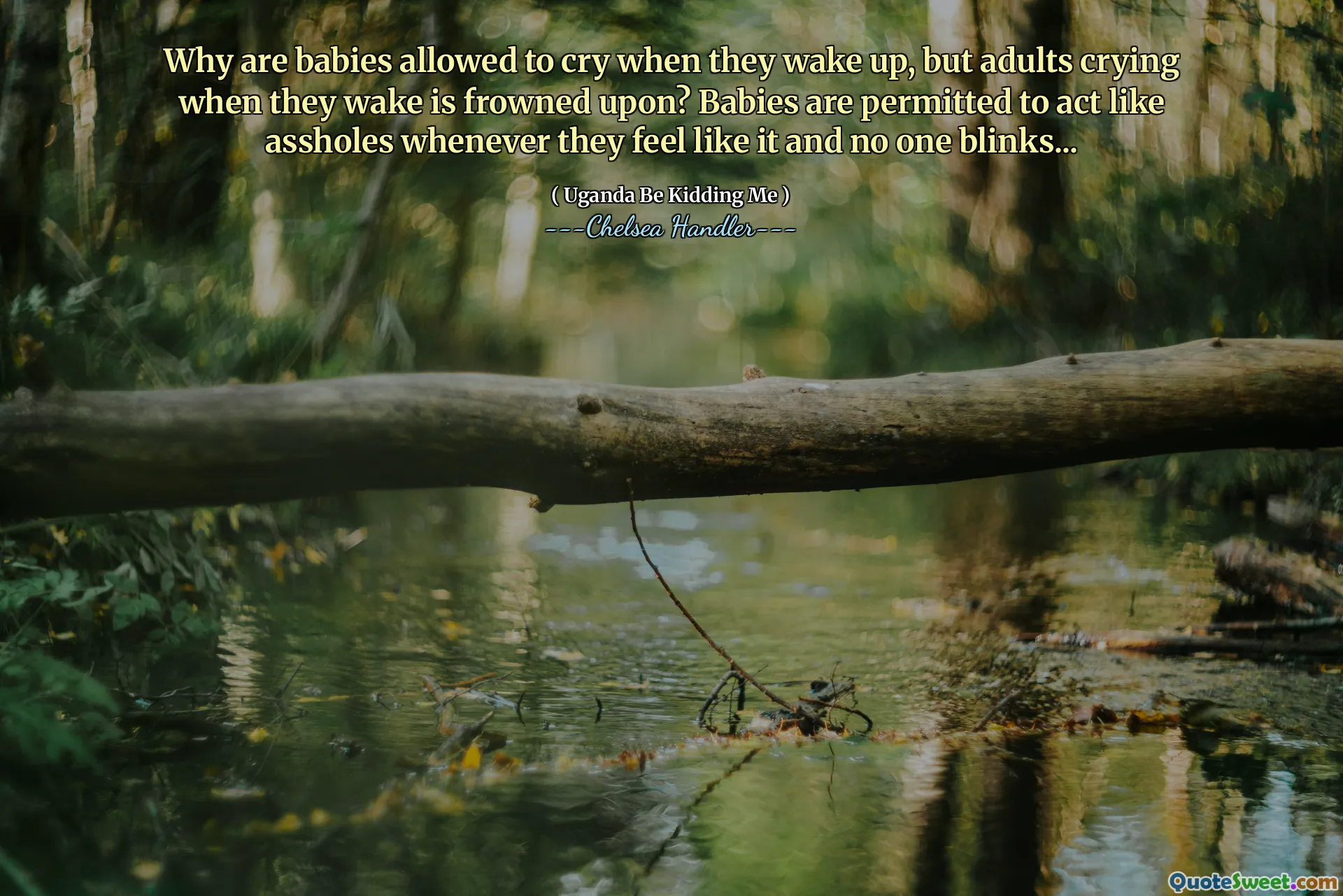
Why are babies allowed to cry when they wake up, but adults crying when they wake is frowned upon? Babies are permitted to act like assholes whenever they feel like it and no one blinks...
This quote offers a candid and somewhat humorous observation about societal norms concerning emotional expression across different age groups. It highlights the contrasting reactions to crying, an inherently human expression of vulnerability and emotional release. Babies, in their innocence and lack of social conditioning, are naturally allowed to express their needs and discomforts without judgment. Their cries are seen as signals for care and attention, functioning as an essential communication tool.
On the other hand, adults are often expected to conform to a set of social expectations that discourage overt emotional displays, especially crying. This reflects a cultural tendency to associate adult emotional expression, particularly vulnerability, with weakness or loss of control. The quote pointedly illustrates this paradox: while babies can be openly emotional and even disruptive without social repercussion, adults who express their emotions similarly may be met with disapproval or discomfort.
This disparity raises important questions about how society views emotional health and maturity. It challenges the assumption that emotional restraint is a sign of maturity, suggesting instead that the freedom and authenticity with which babies express themselves carries a valuable lesson for adults. Perhaps there's merit in advocating for a society more accepting of genuine emotional expression at all ages, recognizing crying not as a failure but as a natural and healthy component of human experience.
This quote, framed with a humorous yet raw tone, incites reflection on how emotional norms shape our interpersonal interactions and self-perceptions. It implicitly calls for empathy toward emotional expression and challenges readers to reflect on their own judgments about crying and vulnerability.

